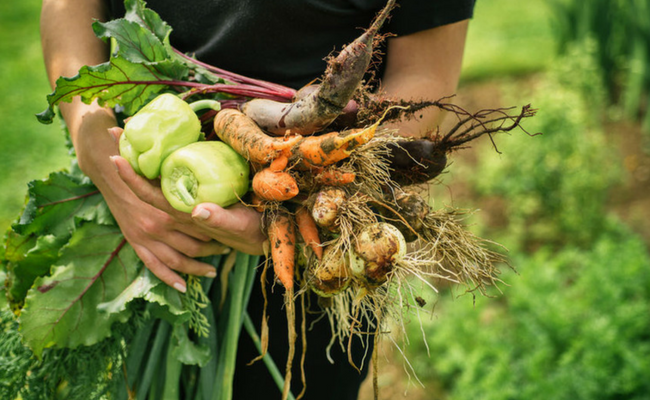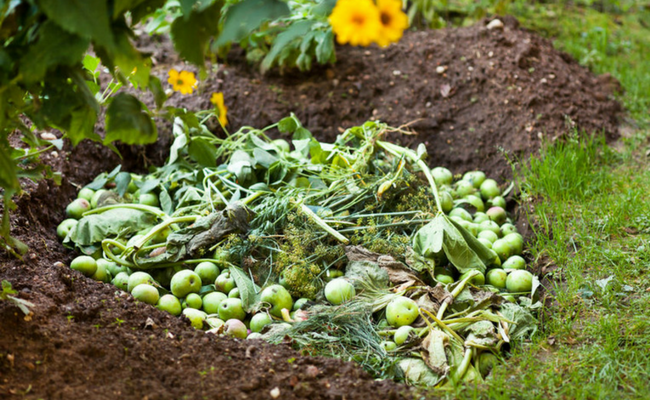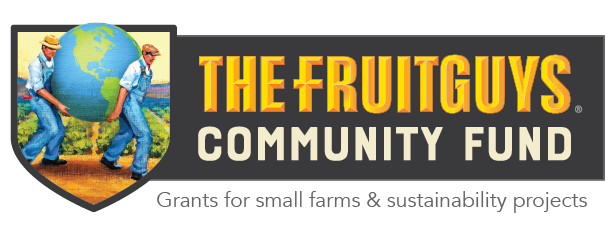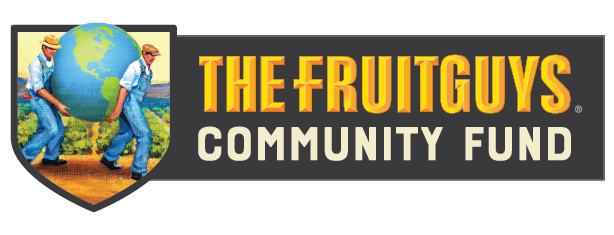 On May 22-24, The FruitGuys participated in the National Farm Viability Conference held in Albany, New York. Our Founder & CEO, Chris Mittelstaedt was part of a plenary panel talking about the role and importance of for-profit and nonprofit food hubs and distributors in supporting farm viability at this year’s conference. Chris also participated in a session about values-aligned food businesses like The FruitGuys. The discussion talked about supporting farm viability through the business operations as well as through our community-related ventures like The FruitGuys Community Fund.
On May 22-24, The FruitGuys participated in the National Farm Viability Conference held in Albany, New York. Our Founder & CEO, Chris Mittelstaedt was part of a plenary panel talking about the role and importance of for-profit and nonprofit food hubs and distributors in supporting farm viability at this year’s conference. Chris also participated in a session about values-aligned food businesses like The FruitGuys. The discussion talked about supporting farm viability through the business operations as well as through our community-related ventures like The FruitGuys Community Fund.
The conference focused on strengthening farm sustainability, building stronger and more resilient local food systems, and supporting the long-term profitability of farming and agri-entrepreneurs from start-ups to generational businesses.
Supporting Local Food Systems
I sat down with Chris to talk about the experience.
Sheila: What panel discussions were you a part of?
Chris: The panel on Monday was around values-aligned businesses in the food system. The Plenary discussion on Tuesday morning was about how our operations and history have supported farm viability. We talked in both sessions about the challenges and changes happening in our food system.
Sheila: Can you talk about some of your impressions about the challenges or changes to our food system?
Chris: There were a few items that were really interesting. Thomas Nelson from Capay Valley Farm Shop had a great thought around “what is food waste.” His point was that for a diversified farm — one in which there are different crops and animals, there really is little or no food waste. For example — if fruit isn’t picked then when it falls it can be fed to animals or can be used to fertilize the soil. The part I thought was fascinating was when he told the audience that what was wasteful to the farm was harvesting a crop and then selling it below that harvest value at market. The point being that so much of the food waste discussion is around using seconds. While although that may seem like a deal for a customer or food processor, the farm bears the brunt of the loss of cost both in terms of money. They don’t get above the cost of production and the added cost of feed or fertilizer in the form of the food that they aren’t composing or giving to livestock. Obviously, from an economic viability standpoint, this is challenging for the farmer. I talked a bit about our commitment to giving back and donating 100% of our slippage and extra fruit to organizations that feed the hungry as a core part of who we are as well as supporting sustainable agricultural projects through The FruitGuys Community Fund.
We did also talk about food safety and the changes that are happening as this program moves from USDA oversight to regulation under FDA. A friend of mine here in the Bay Area who is a scientist had pointed out that we are witnessing a large business shift amongst the huge industries of food, pharma, and fuel. I explained this observation that there is a convergence in this space and that I find it concerning for small farm viability. The main point is that while we all agree that food safety is paramount and a number 1 priority, drug-level like regulation for small, independent farmers adds cost, complication and creates a competitive advantage for larger agribusinesses against the small guys. This lead to a fascinating discussion on the first panel about “what is the definition of farming” as agribusiness moves toward more lab-based concepts like vertical farming and large scale warehouse farming. Should there be a definition of small farming around “something that was grown in soil, or something that was grown on a farm where people live?” I think these are questions that we are all going to be wrestling with in the next decade.
 How To Support Farm Viability
How To Support Farm Viability
Sheila: What observations did you have about The FruitGuys and our role in supporting farm viability during the conference?
Chris: One of the topics that came up was “what I was most proud of and how it relates to farm viability.” I told the audience that our company culture and the vision and execution of our teams at FruitGuys was both the thing I am most proud of and that continues to be the core underpinning of how we affect farm viability. We make it a goal to work with many small farms and measure the percentage of small farm purchases. We think in terms of long relationships and creative solutions for giving back when working with small farms. I’m proud of all of these things. I told the crowd about the creative solutions we’ve come up with to work with small farms as much as possible. For example, the time the Philly office worked with a small farm to extend our buying from them by finding cold storage solutions that allowed us to buy their crop past the immediate fall harvest. Now that we are coming up on our 20th year in business I feel, more than ever before, that our approach of “growing healthy companies” — and the nuances of this mission that go beyond providing a healthy product but providing the ability for engagement, charity, culture and vision of a unique approach to business — is something that has potential to grow beyond what I ever expected.
Farmers are long-term thinkers. They have to be. They are stewards of the land. They are providers of sustenance for our population. They are economical innovators that need to find practical solutions. It also struck me how much of a role model these independent and ingenious farmers are for us here at The FruitGuys. And that was pretty cool to see.
Copyright: viki2win / 123RF Stock Photo
Copyright: maxsheb / 123RF Stock Photo




